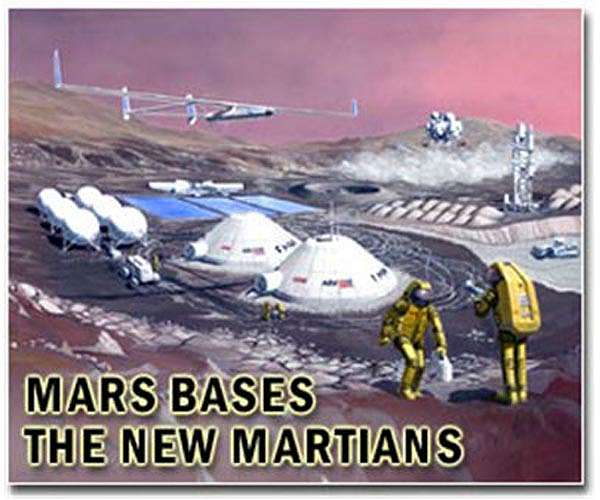
As humanity sets its sights on Mars, understanding the challenges that await is crucial. Enter M-MATISSE, a pioneering mission that could lay the groundwork for future human landings on the Red Planet. Unveiled at the Royal Astronomical Society’s National Astronomy Meeting 2025 in Durham, this mission promises to revolutionize our understanding of Martian space weather.
The mission involves deploying two robotic orbiters to Mars to explore its magnetosphere, ionosphere, thermosphere, and lower atmosphere. Researchers believe that these investigations will be vital in forecasting potentially hazardous conditions for both spacecraft and astronauts, making M-MATISSE an essential precursor to human exploration.
Understanding Martian Space Weather
If approved by the European Space Agency (ESA) next year, M-MATISSE would become the first mission dedicated solely to studying planetary space weather on Mars. Dr. Beatriz Sanchez-Cano of the University of Leicester emphasizes the mission’s importance, stating,
“M-MATISSE will provide the first global characterisation of the dynamics of the Martian system at all altitudes, to understand how the atmosphere dissipates the incoming energy from the solar wind, including radiation, as well as how different surface processes are affected by space weather activity.”
This comprehensive study aims to offer insights into the Martian system’s behavior and the processes controlling space weather and climate. Such understanding is critical for accurate space weather forecasts, which are essential for preventing hazardous situations on Mars, much like the monitoring done on Earth.
The Mission’s Design and Objectives
M-MATISSE, short for ‘Mars Magnetosphere ATmosphere Ionosphere and Space-weather SciencE’, is among three candidates vying for ESA’s next medium-class mission, with a decision expected by mid-2026. If selected, the mission will deploy two identical spacecraft, Henri and Marguerite, to study Mars from different vantage points.
Henri will focus on the Martian plasma system, while Marguerite will explore the solar wind and Mars’s far tail, an area largely unexplored. The mission aims to uncover how the solar wind affects Mars’s atmosphere, ionosphere, and magnetosphere, and how these interactions impact the planet’s lower atmosphere and surface.
UK’s Role in the Mission
The United Kingdom is playing a pivotal role in this international effort, particularly in developing the particle instrument suite, which will provide unprecedented observations of particles at Mars. Dr. Sanchez-Cano, a recipient of the RAS Fowler Award in 2022, highlights the UK’s contributions, noting,
“The UK is spearheading this large international effort during the mission selection phase. In particular, it is responsible for the particle instrument suite which will provide the most accurate to date observations of all particles at Mars, including neutrals, ions and electrons of different energies.”
The UK is also responsible for the mission’s Science Centre, which will coordinate the scientific planning and data exploitation in collaboration with ESA.
Implications for Future Mars Exploration
The potential selection of M-MATISSE marks a significant step forward in Mars exploration. By improving our understanding of Martian space weather, the mission could pave the way for safer and more informed human expeditions to the planet. Such knowledge is crucial for assessing Mars’s habitability and understanding the evolution of its atmosphere and climate.
As the world awaits ESA’s decision, the scientific community remains hopeful that M-MATISSE will unlock new frontiers in space exploration. For more information on the mission concept, interested parties can visit the University of Leicester’s dedicated project page.
The announcement of M-MATISSE comes at a time when interest in Mars exploration is at an all-time high. With missions like NASA’s Perseverance rover and China’s Tianwen-1 already providing valuable data, M-MATISSE could complement these efforts by offering a deeper understanding of the planet’s environmental conditions.
The journey to Mars is fraught with challenges, but missions like M-MATISSE could provide the insights needed to overcome them, bringing humanity one step closer to setting foot on the Red Planet.




